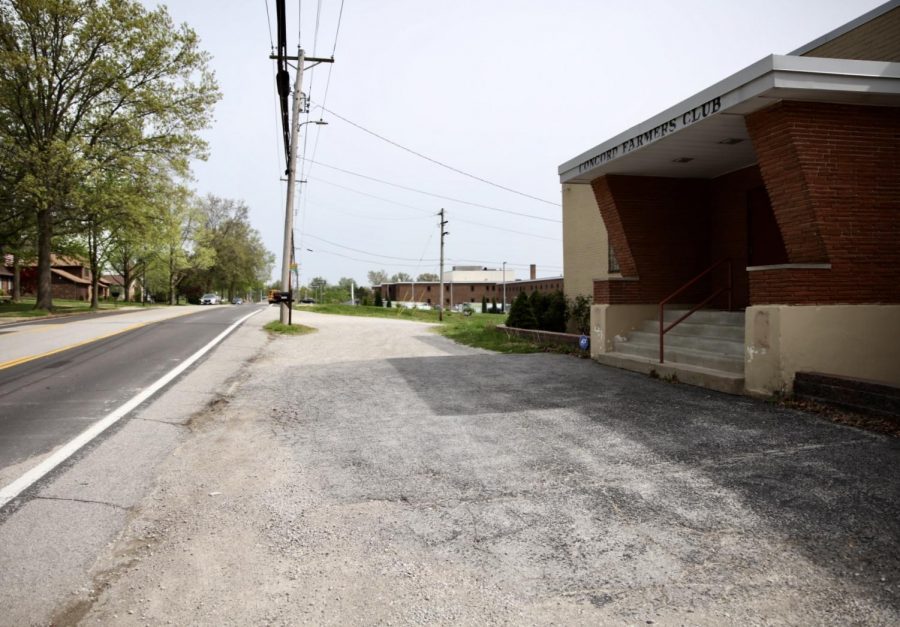The Lindbergh Board of Education unanimously passed two important resolutions regarding the passing of Proposition R 2024 – April’s $150 million no-tax-rate-increase bond issue – at its June 18 meeting: a resolution authorizing the issuance of $55 million of general obligation bonds and the intent to use Construction Management at Risk (CMAR).
First before the board was the resolution authorizing the issuance of $55 million of general obligation bonds.
“This $55 million is the first piece of the $150 million,” Todd Goffoy, Piper Sandler managing director, explained to the board. “The plan of finance that we’ve got laid out would contemplate another $75 million that would be used for project costs. That would be done late in 2025. And then the third and final piece would be $20 million that would be issued in about December of 2026, and that would be the portion of the bond proceeds used to refinance a prior COP (certificate of participation) issue.”
On July 9, a competitive bond sale was held to begin the process. The competitive sale included five bidders and resulted in a 4.18% true interest cost, with Hilltop Securities as the low bidder. As a result of the competitive bidding and low interest rates, the district was able to sell the bonds at a 109.6% premium, in turn providing $60,426,346 for Prop R 2024 capital improvements. The bond proceeds will be wired in on July 23.
According to Lindbergh Schools Chief Financial Officer Joël Scheible, there was about .11% difference between the lowest and highest bids. Though it may seem insignificant, that small percentage difference equals about $1 million in savings to taxpayers over the 19-year term of the bonds. The bonds have a call date of March 1, 2032, meaning that date marks the beginning of the call period when the district has the right to redeem and refinance the bonds from bondholders.
Also approved at the board’s June 18 meeting was the intent to use a “construction management at risk,” or CMAR.
The CMAR policy, based on state statute updates, was adopted by Lindbergh Schools in March 2020. It provides professional services and acts as a consultant to the owner – in this case, the school district – in the design development and construction phases. To use the CMAR delivery method, projects must exceed $3 million.
According to a memo from Lindbergh Schools Superintendent Tony Lake, the district “found the CMAR construction process, especially the involvement of the contractor early in the project design phase, efficient, transparent and fiscally responsible” when the process was used for the Gifted Center Project.
The resolution passed at the board’s June 18 meeting, approving the CMAR process on the Prop 2024 Sperreng Project, which will include mechanical, electrical, plumbing, civil and structural renovations. The board previously approved and is using the CMAR method of construction for the Truman Middle School renovation and the Farmers Club, along with the gym and storm shelter projects at Crestwood, Kennerly and Long Elementary Schools – all Prop 2024 projects. BSI was approved by the board as the construction manager for those projects.
“We feel like it allows us to plan and maximize the taxpayer dollars because we know going in we have a guaranteed price,” Lake said. “Putting the architect and the contractor in the room while you’re doing the plans, designing and doing construction documents – the contractor understands what the architect means in those plans. It allows them to really do the cost estimation. The people we’ve been working with have been spot on with their cost when we’ve done the CMAR.”
“And they represent us and our desire on cost on the project,” Scheible added. “It doesn’t always have to be me saying, ‘How much does that cost?’ We have a contractor there that says ‘That’s going to cost a lot,’ so it’s very helpful as we plan.”
The resolution passed unanimously, 7-0.
Recommended: Lindbergh BOE approves $150M bond for upgrades, STEM center



